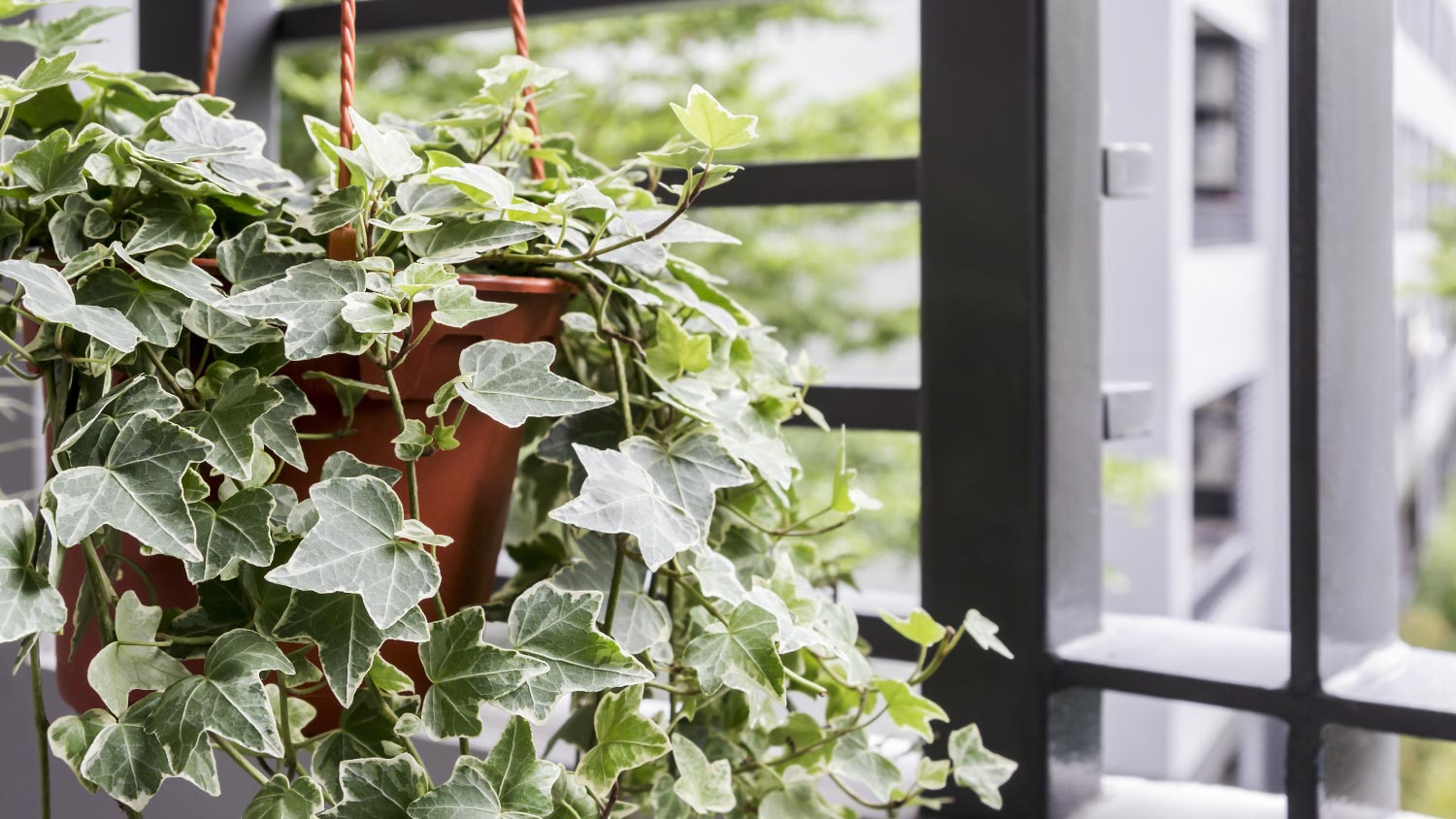9 Common Plants That Are Poisonous to Pets
Don’t let your pet chomp on these plants


Whether your apartment is a tropical jungle full of houseplants or you’re an avid gardener, it’s smart to do your research when it comes to poisonous plants. This is especially true if you share your space with four-legged friends. Curious pups and kitties love to explore with their mouths. And while many plants are safe for pets to nibble on in small quantities, there are ones that’ll poison your fur baby—some can even cause life-threatening symptoms.
Here are some common plants that are poisonous to pets (but don’t forget, this list is not exhaustive).
1. Aloe Vera
Aloe vera is a popular, hard-to-kill house plant that has medicinal benefits for humans. But while it can help us humans heal, the anthraquinone glycosides found in the skin of the leaves can cause vomiting, diarrhea, and depression in pets if they ingest a large-enough piece, according to the Pet Poison Helpline. These mildly toxic chemicals can also irritate your pet’s skin.
2. Azalea
Part of the Rhododendron genus, azaleas are common landscape plants containing pretty harsh chemicals known as grayanotoxins. If your pet eats a small corner of a leaf, it might cause symptoms such as drooling, diarrhea, abdominal pain, seizures, or cardiovascular problems. In severe cases, your pet could fall into a coma if the central nervous system is badly affected—even eating a few leaves can bring on an extreme (sometimes fatal) reaction in small pets.
3. Cyclamen
The cyclamen is a popular indoor holiday plant. But the tuberous roots are particularly toxic, and if your pet is fond of digging them up to eat, it can result in cardiac problems. Symptoms include excessive drooling, vomiting, and seizures. Severe toxicity can be fatal.
4. Daffodil
This spring flower contains lycorine, which triggers vomiting. The toxins are more concentrated in the daffodil's bulb, so if you have a greedy terrier who loves to dig, they might be at greater risk. Other symptoms include drooling, diarrhea, rapid heart rate, and breathing difficulties. Hyacinth and tulip bulbs also present similar problems.
5. English Ivy

English ivy may promote clean air, but, like many other ivy species, this vine contains saponins, which are moderately toxic to pets. Look out for vomiting, stomach pain, respiratory issues, and drooling. The foliage contains higher levels of toxins than the berries.
6. Hosta
Low-maintenance hostas are popular patio plants and often border shady lawns. But their dramatic, large foliage also contains toxic saponins that are problematic for dogs and cats. While they aren’t as poisonous as some plants on this list, if your dog consumes a lot of the foliage, he’ll have a very sore stomach. Instead, opt for a pet-friendly, shade-loving plant like coral bell.
7. Lilies
Many lily species are well-known for being highly toxic to pets, especially cats. Some, such as Peace or Calla lilies, are not true lilies and may only irritate the mouth and cause mild gastrointestinal issues. But if you have a feline BFF, you should steer clear of true lilies such as Tiger, Day, Asiatic, Stargazer, and Easter, altogether. Ingestion of a tiny amount (even just the pollen) can cause kidney damage that could be fatal.
If you’re concerned your cat has eaten a piece of one of your lilies, the sooner you seek veterinary advice, the better. Complete kidney failure can set in within 36 to 72 hours.
8. Sago Palm
If you’re a warm southern-state dweller, you may be considering a sago palm for your garden or as an indoor potted plant. But this popular plant is highly toxic to pets, and the seeds in particular are a problem. Ingestion of even one or two can result in severe symptoms, including gastrointestinal issues, weakness, seizures, and liver failure. This plant can also be fatal to your four-legged friend.
9. Yew Tree
The bark, seeds, berries, and leaves of long-lived yew trees contain a toxin called taxine. When ingested, this affects the central nervous system. Symptoms include incoordination, respiratory issues, gastrointestinal issues, and, in severe cases, cardiac failure.
What Should I Do If I Suspect My Pet Has Ingested a Poisonous Plant?
If you think your pet has chewed on a toxic species, don’t delay in reaching out to your vet or the Pet Poison Helpline for advice. In severe cases of toxicity, getting treatment ASAP could save your pet’s life. Try to take along a piece of the suspect plant and provide details of quantities ingested and at what time.
Don’t attempt to induce vomiting unless your vet instructs you to do so. Often, this can make the situation worse.





- Landscapers
- Tree Surgeons
- Gardening Services
- Landscape Architects
- Sod Installation
- Tennis Court Contractors
- Landscape Design
- Retaining Wall Companies
- Grading Companies
- Landscape Rock & Sand Delivery
- Mulch Delivery Services
- Pond Companies
- Artificial Grass Companies
- Shrub Removal & Trimming
- Backyard Design Companies
- Commercial Landscaping
- Koi Pond Services
- Backyard Landscapers
- Trampoline Assembly
- Hedge Trimming
- Pond Services
- Garden Design
- Outdoor Plant Watering
- Putting Greens
- French Drains
- Turf Installation
- Sod Removal Services
- Lawn Repair Services
- Brush Chipping Services
- Hardscape Contractor
- Landscape Rock Removal















